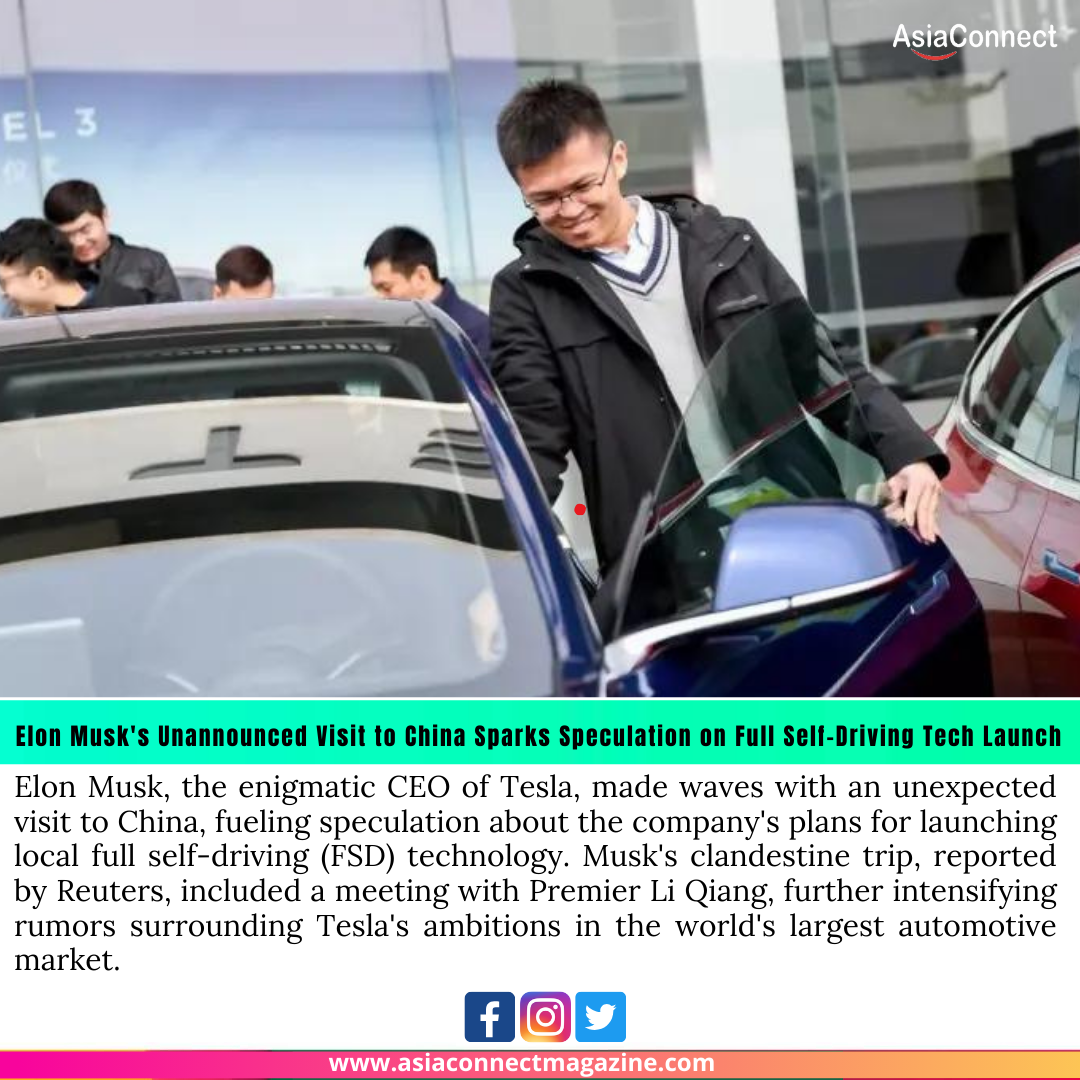Elon Musk, the enigmatic CEO of Tesla, made waves with an unexpected visit to China, fueling speculation about the company’s plans for launching local full self-driving (FSD) technology. Musk’s clandestine trip, reported by Reuters, included a meeting with Premier Li Qiang, further intensifying rumors surrounding Tesla’s ambitions in the world’s largest automotive market.
Musk’s impromptu visit underscores the strategic significance of China in Tesla’s global expansion plans. With its vast consumer base and rapidly growing demand for electric vehicles (EVs), China presents a lucrative opportunity for Tesla to solidify its position as a leader in the EV industry. By engaging directly with Chinese officials and stakeholders, Musk aims to navigate the complexities of the market and accelerate Tesla’s growth trajectory.
The focus of Musk’s discussions with Premier Li Qiang is reported to be on Tesla’s plans for introducing full self-driving technology in China. The prospect of autonomous driving capabilities holds immense promise for revolutionizing the transportation landscape, enhancing safety, and unlocking new levels of convenience for consumers. Tesla’s relentless pursuit of FSD innovation has positioned it at the forefront of the autonomous driving race, making the potential launch of FSD in China a significant milestone.
However, the road to FSD deployment in China is not without its challenges. Regulatory requirements, infrastructure readiness, and public acceptance are crucial factors that Tesla must navigate to ensure the successful rollout of FSD technology. By engaging with Chinese authorities and seeking their support, Musk aims to address regulatory concerns and pave the way for the seamless integration of FSD into the Chinese market.
Tesla’s ambitions in China extend beyond FSD technology, encompassing various aspects of its business operations. From manufacturing to sales and service, Tesla has made significant investments in establishing a strong presence in China. The construction of Gigafactory Shanghai stands as a testament to Tesla’s commitment to localizing production and meeting the growing demand for its vehicles in the region.
Moreover, Musk’s visit comes at a pivotal moment for Tesla’s relationship with China, amid growing scrutiny and competition in the EV sector. While Tesla has enjoyed considerable success in China, it faces increasing competition from domestic rivals and heightened regulatory scrutiny. Musk’s engagement with Chinese officials signals Tesla’s proactive approach to addressing challenges and fostering collaboration for mutual benefit.
The potential launch of FSD technology in China holds implications not only for Tesla but also for the broader automotive industry and society at large. Autonomous driving has the potential to transform mobility, reduce accidents, and alleviate traffic congestion, ushering in a new era of transportation innovation. As Tesla continues to push the boundaries of FSD technology, its efforts in China could serve as a catalyst for accelerating the adoption of autonomous vehicles globally.
In conclusion, Elon Musk’s unannounced visit to China and his discussions with Premier Li Qiang have sparked anticipation regarding Tesla’s plans for introducing full self-driving technology in the country. The potential launch of FSD holds significant implications for Tesla’s growth strategy, the automotive industry, and the future of mobility. As Tesla navigates the complexities of the Chinese market, its collaboration with Chinese authorities underscores the importance of regulatory alignment and strategic partnerships in realizing the vision of autonomous driving.





